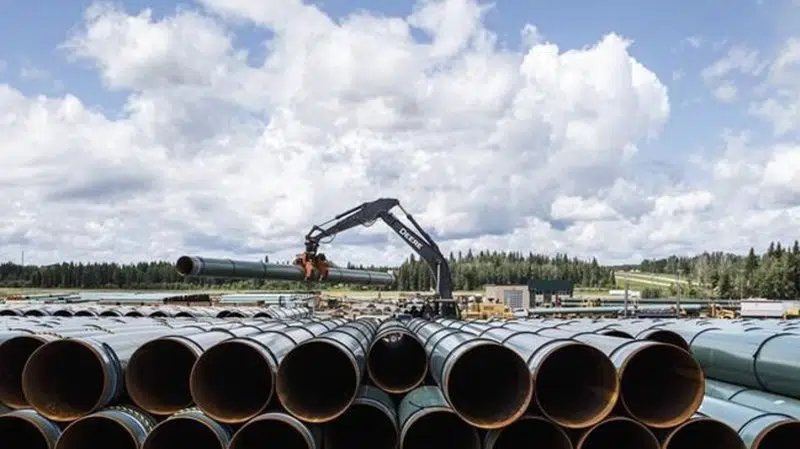
Supreme Court dismisses B.C.’s appeal in Trans Mountain pipeline case
OTTAWA — The Supreme Court of Canada shut down British Columbia’s move to regulate what can flow through an expanded Trans Mountain pipeline from Alberta.
B.C. was appealing to the country’s highest court after the B.C. Court of Appeal ruled last May that the province couldn’t impose any restrictions on the contents on the Trans Mountain pipeline expansion.
On Thursday, the Supreme Court agreed.
“We are all of the view to dismiss the appeal for the unanimous reasons of the Court of Appeal for British Columbia,” Chief Justice Richard Wagner said.


